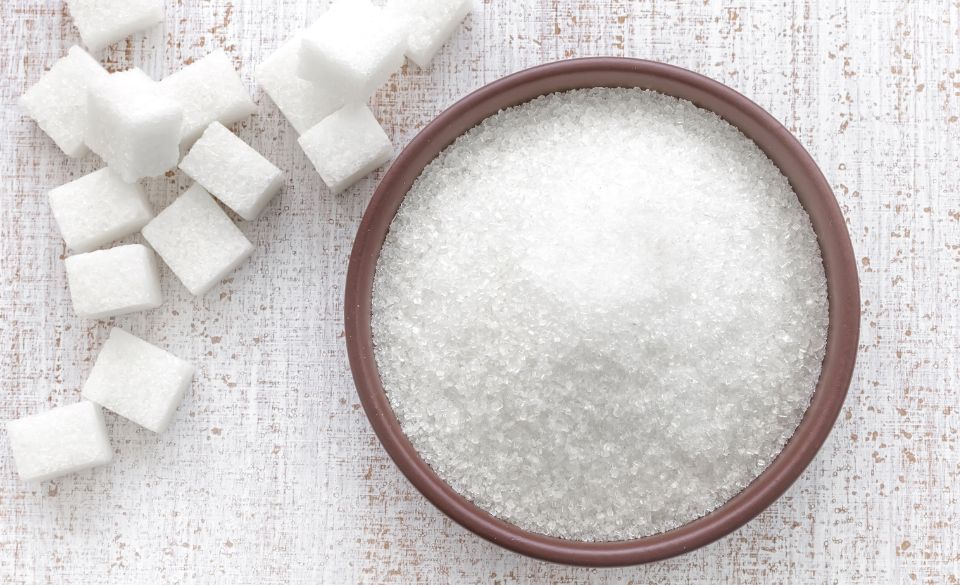
How To Reduce Sugar Intake
Page Contents
Why You Should Reduce Sugar Intake
Are you looking for ways to improve your health and well-being? If so, reducing your sugar intake is an excellent starting point. High levels of sugar consumption can cause a number of health-related problems and can contribute to the development of chronic diseases. Here are some of the health benefits of reducing your sugar intake.
1. A healthier weight — Sugar-laden foods and beverages are typically high in calories. Eating too much sugar can lead to weight gain and potentially even obesity. By reducing your sugar intake, you will be able to better manage your weight and maintain a healthier lifestyle.
2. Healthy blood sugar levels — Eating too much added sugar will lead to blood sugar zooming up and crashing down. Limiting sugar consumption will help to maintain healthy blood sugar levels and avoid instances of high and low blood sugar levels.
3. Improved cardiovascular health — Eating added sugar increases the risk of developing heart disease and high blood pressure levels. Limiting sugar consumption can reduce the risk of these conditions and improve your overall heart health.
4. Better mental health — Eating too much sugar can cause changes in mood and behavior, leading to exacerbations in issues such as depression, anxiety and stress. Wrestling with emotional and mental issues can be draining and by cutting back on the sweets, you can reduce these negative symptoms.
Reducing your sugar intake is an excellent way to improve your overall health and wellbeing. By making healthier choices and avoiding sugary snacks and drinks, you can get started on a healthier lifestyle.
How To Reduce Sugar Intake
Sugar has become an integral part of modern diets, in most cases providing more than the recommended daily intake. There is no shortage of advice about the hazards of eating too much sugar, ranging from weight gain to various health risks. Making the commitment to reduce your sugar intake is something that will benefit your health in the long run.
Look out for Added Sugars
When trying to reduce your sugar intake, it is important to look out for added sugars in food and drink. Many foods and drinks contain hidden sources of sugar that can be easy to overlook. Foods like salad dressings, canned goods, and condiments often contain added sugar. Reading labels and looking out for sugar’s many aliases (honey, corn syrup, molasses, etc.) can help you identify added sugar.
Eat Whole Foods
Eating more whole foods can help reduce your sugar intake. Whole foods such as fresh fruits and vegetables, lean proteins, and whole grains are naturally low in sugar and provide more nutritional benefits than processed, packaged goods. Focusing on incorporating whole foods into your diet can help reduce your overall sugar intake.
Choose Carb Sources Wisely
Carbohydrates from grains, fruits, and dairy are the main sources of natural sugar. Choosing the right sources of carbs can help reduce your sugar intake. Whole grains such as oats, brown rice, and quinoa should be the main sources of carbs, as opposed to processed or sugary carbs like chips and white bread.
Balance Blood Sugar
Eating regularly and intentionally balancing carbohydrates with protein and healthful fats can help keep your body’s blood sugar levels balanced. This will reduce sugar cravings, a symptom of poor blood sugar balance. Adding things like nuts, seeds, and nut butters to meals can help with this balance.
Swap Sugary Drinks
Drinks like soda and juices often contain the highest amount of added sugars in a diet. Reducing or eliminating these sugary drinks is essential for reducing sugar intake. Swapping sodas and juices with coffee, tea, and seltzer water sweetened with a natural sweetener is an easy way to lower added sugars in the diet.
By making relatively simple changes to your diet, you can easily reduce your sugar intake, and ultimately, improve your health. Eating whole foods, choosing the right sources of carbohydrates, balancing blood sugar, and eliminating sugary drinks are all effective ways to reduce sugar intake.
What Foods Can Reduce Sugar Intake
Do you like to snack a lot? Do you have a sweet tooth? If so, you’re likely looking for ways to reduce your sugar intake. You’re probably already aware that consuming too much sugar can have a negative effect on your health over time, so knowing what foods can help you reduce sugar intake can be beneficial.
Fruits and vegetables are a great choice when it comes to reducing sugar consumption. Fruits are naturally sweet, so opting for one instead of a sugar-filled snack can not only reduce your sugar intake for the day, but also provide your body with much-needed nutrients and fiber. Apples, oranges, and berries are all great choices for a healthy snack that won’t leave you feeling guilty.
High-fiber, whole grain foods can also help keep you away from the sweet stuff. Opting for whole-grain breads and cereals can help you limit the amount of added sugars you’re consuming. Look for breads, cereals, and other grain-based items that list whole grains as one of the first few ingredients.
Protein-packed foods such as nuts, lean meats, eggs, and legumes are excellent choices for those looking to reduce their sugar intake. Protein-rich snacks will help keep you full throughout the day and will provide your body with energy to help you get through your day.
Full-fat dairy products are an excellent source of calcium and can be satisfying. Instead of opting for low-fat dairy products that often contain added sugars, reach for full-fat options instead. Greek yogurt, cheese, and full-fat milk are all good choices.
Finally, try snacking on healthy fats. Avocados, olive oil, peanut butter, and nuts are all excellent sources of healthy fats which can help to keep you feeling full between meals. Fats can also help slow down the absorption of sugars when eaten along with high-carbohydrate foods, so adding small amounts of fat with each meal can help reduce your overall sugar intake.
Reducing your sugar intake can take some getting used to, but with a few simple swaps, you can make getting the nutrients you need more enjoyable. Reach for fresh fruits and vegetables, whole grains, proteins, dairy products, and healthy fats and you’ll be well on your way to a healthier, less-sugary lifestyle.


